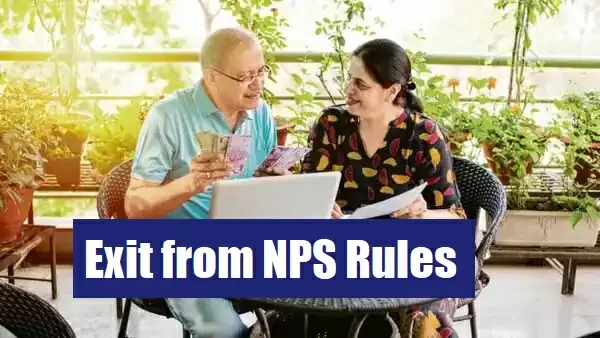National Pension System (NPS) is the best option of savings for post-retirement expenses. This is a government scheme, so investing in it is completely safe.
By investing in it, a large fund is created in the long term, which is very useful after retirement. Along with this, there is also a regular income in the form of pension every month.
But, these benefits are available only after the subscriber turns 60 years old. That is why many people do not invest in NPS , because they think that the money deposited in NPS will not be of any use to them if they need money in between. But, this is not true. Withdrawal of money from NPS is allowed before the subscriber turns 60 years old. Let us know what are the terms and conditions for this.
1. Partial Withdrawal
The subscriber is allowed to withdraw some money only after three years of opening the NPS account. The condition is that the subscriber can withdraw 25 percent of his total contribution. This will not include the employer’s contribution. PFRDA has allowed withdrawal of 25 percent contribution in certain situations.
-Higher Education: The subscriber can withdraw money for his or his children’s higher education.
-Marriage: The subscriber can withdraw this money for his or his children’s marriage.
-To buy a house: If the subscriber does not own a house then he can withdraw the money to buy a house.
-For treatment: The subscriber can withdraw money for the treatment of himself, his wife/husband or children. But, this money can be withdrawn only for the treatment of serious diseases like cancer, kidney and heart disease.
It is important to note that a subscriber is allowed three partial withdrawals during the NPS tenure. There should be a gap of at least 5 years between one withdrawal and another.
2. Premature exit (withdrawal before the age of 60)
If for any reason a subscriber wants to withdraw money from NPS before the age of 60, then he can withdraw the money after 10 years of opening the account. But, there are some conditions for this.
-80% of the corpus should be used to buy an annuity. This annuity will give you pension every month.
-It is allowed to withdraw 20% of the corpus i.e. total funds in lump sum.
This means that if the subscriber wants to withdraw his money after 10 years, he will have to use 80% of the total fund created to buy an annuity. This will give him a pension every month, which is the main purpose of investing in NPS.
3. Exit on death before 60 years
If the subscriber dies before the age of 60, then his nominee or legal heir can withdraw the entire amount deposited in NPS in lump sum. In such a situation, there is no need to buy annuity. This way the subscriber’s family gets the entire money in lump sum.
4. How much tax will be charged?
It is important to understand the tax rules applicable on premature withdrawal of money. Partial withdrawal i.e. up to 25% of NPS corpus is tax-free. If the subscriber wants to withdraw the entire amount before the stipulated time, then 20% of the lump sum amount will be taxed. Keep in mind that in case of premature withdrawal of the entire amount, only 20% of the money is allowed as lump sum withdrawal. You will have to buy annuity with the remaining money. The pension received from the annuity will be taxed as per the subscriber’s income tax slab.
From the above rules for withdrawal before attaining the age of 60, it is clear that PFRDA has allowed the subscriber to withdraw money if necessary. But, it has also kept in mind that the subscriber’s main motive for investing in NPS should be to get a regulated income after retirement.
Related Articles:-
UPI Service: India to introduce UPI payment service in Maldives
Yogi government’s new guideline regarding “Encounter”, DGP issued guidelines
India Post GDS 3rd Merit List OUT at indiapostgdsonline.gov.in- Region wise PDF

